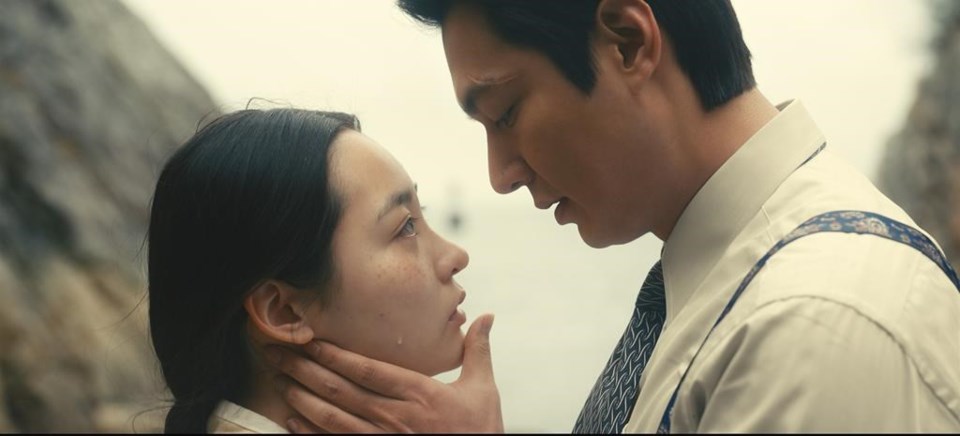TORONTO — Mounting an epic tale is nothing new for "Pachinko" creator and showrunner Soo Hugh.
Her credits over the past decade flit across genre and have steadily grown in scope: from writer on 2013's CBS /Global series "Under the Dome" based on the Stephen King novel of the same name; to creator of 2015's Steven Spielberg-produced ABC series "The Whispers;" to showrunner on 2018's AMC horror anthology "The Terror."
With "Pachinko," a sprawling Apple TV Plus series based on Min Jin Lee's bestselling novel about four generations of a Korean immigrant family across Korea, Japan and America, Hugh says she's found a formidable project to push her even further.
"When I was trying to put the show together, there were so many hopes and fears," the Korean-born, New York-based writer says in a video call from Los Angeles.
"It's a question of how do you even do a show that spans such a huge expanse of time and places? At the same time, that was also the draw for me.
"I love challenges. The bigger the narrative mountain, the more I want to climb that. Mind you, I won't climb a real mountain in real life!"
After wrapping "The Terror," a Budapest-shot supernatural survival epic, Hugh was hesitant to sign on to yet another massive production. But a personal connection to Lee's book wouldn't let her go.
"It really shook open some questions I have for my own family, and it made me want to know what were these blank spaces of my own life. That's the power of that story."
Friday's premiere episode begins with Sunja, the daughter of a poor Korean family who unexpectedly becomes pregnant and then accepts a marriage proposal from a minister on his way to Japan. Her decision sets off a dramatic saga that touches on sacrifice, identity and imperialism.
"When I read her story, how can I not think about my mother and my grandmother and what they went through? This is about 20th-century Korea, even the diaspora experience is part of that, so it's extremely close to me," says Hugh, also an executive producer on the eight-episode series, which will see three episodes drop on Friday, followed by a weekly release.
"I didn't want to do a documentary, I didn't want to do something that reads like a textbook. Instead, I wanted it to feel like something subjective."
Which is how Hugh was able to inject an intimate tone as deep as the show's physical and generational scope is wide. But she couldn't do it alone.
The international cast includes "Minari" Oscar winner Youn Yuh-jung as an older Sunja, and Hugh lauds "visionary" directors Kogonada and Justin Chon who each directed half of the episodes, which were shot in Korea and Vancouver.
Working with them was a "privilege," says Hugh, adding, "You're trying to create a mind meld between people who think like you or have the same precision, rigour or standards of excellence.
"This show is too hard of a show to make if you don't love it.... You were only drawn to this project if you understood it. Otherwise, you could make the same amount of money doing other, easier shows."
Hugh says the show's emotional sweep holds universal appeal, while its themes remain relevant in light of the recent worldwide rise in anti-Asian racism.
"Sunja's experience, in her coming of age, is in everyone's bones," says Hugh.
"It shows you that the past doesn't die, that so much of this violence, hatred and destructive, hateful rhetoric that surrounds racism, it didn't start from nowhere.
"It's been burning and burning and burning for thousands of years.
"If there's one thing that a series like this can do, I think it's to show that the humanity of people that you normally ignore or erase is crucial."
The series arrives on the heels of Disney/Pixar's high-profile Asian-focused feature "Turning Red," which found enthusiastic critical response for its spotlight on the inner life of a Chinese Canadian girl going through puberty.
However, the embrace was not unanimous. A controversial CinemaBlend review criticized the tale as "limiting in scope" due to its Asian characters and culture. It was pulled after a public outcry, which also elicited an apology from the writer.
Hugh is unfazed by the prospect of racially charged criticism, insisting if viewers "speak in the universal language of emotions (they will) get it."
"That's your problem and not mine. I don't want to make every bozo happy, but I do think the audience is smart and I trust them," she says.
"That doesn't mean I need everyone to watch the show, and so whoever says, 'This show isn't for me,' I'm not going to pander to you."
That urge to showcase stories for Asian writers and viewers has motivated her to help build a pipeline and platform for Asian representation onscreen.
Hughrecently signed a multi-year overall deal with Universal Content Productions to develop, write and produce projects, and launch an incubator program to help bring more Asian/Pacific Islander stories to the screen for NBCUniversal.
"I think progress is being made, but I'm not sure if it's being made fast enough," says Hugh.
"Growing up, I wanted to be a filmmaker but I had no idea how to take that first step. Even with the internet now, I don't think the world is any clearer.
"So the question is, how do we bring people who have a story to tell to the door, how do we help them crack it open and then help them tell it big, too? That's my goal."
This report by The Canadian Press was first published March 22, 2022.
Sadaf Ahsan, The Canadian Press




